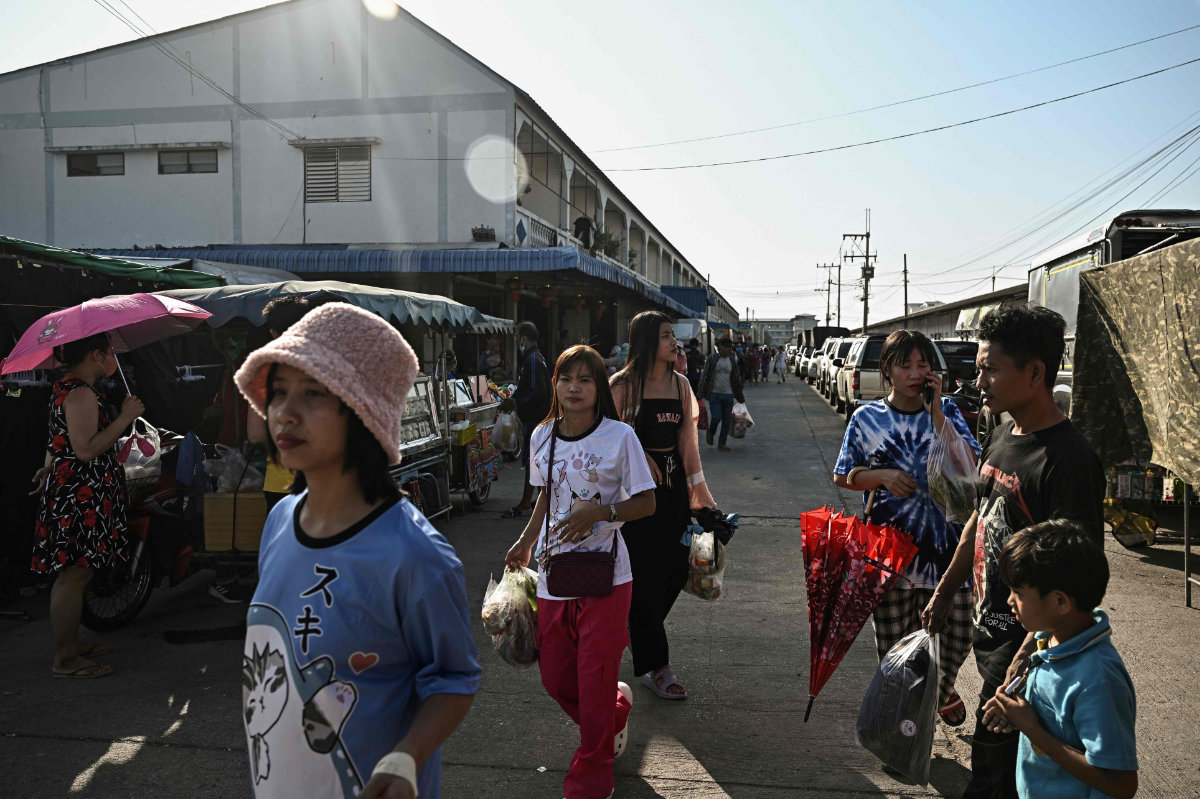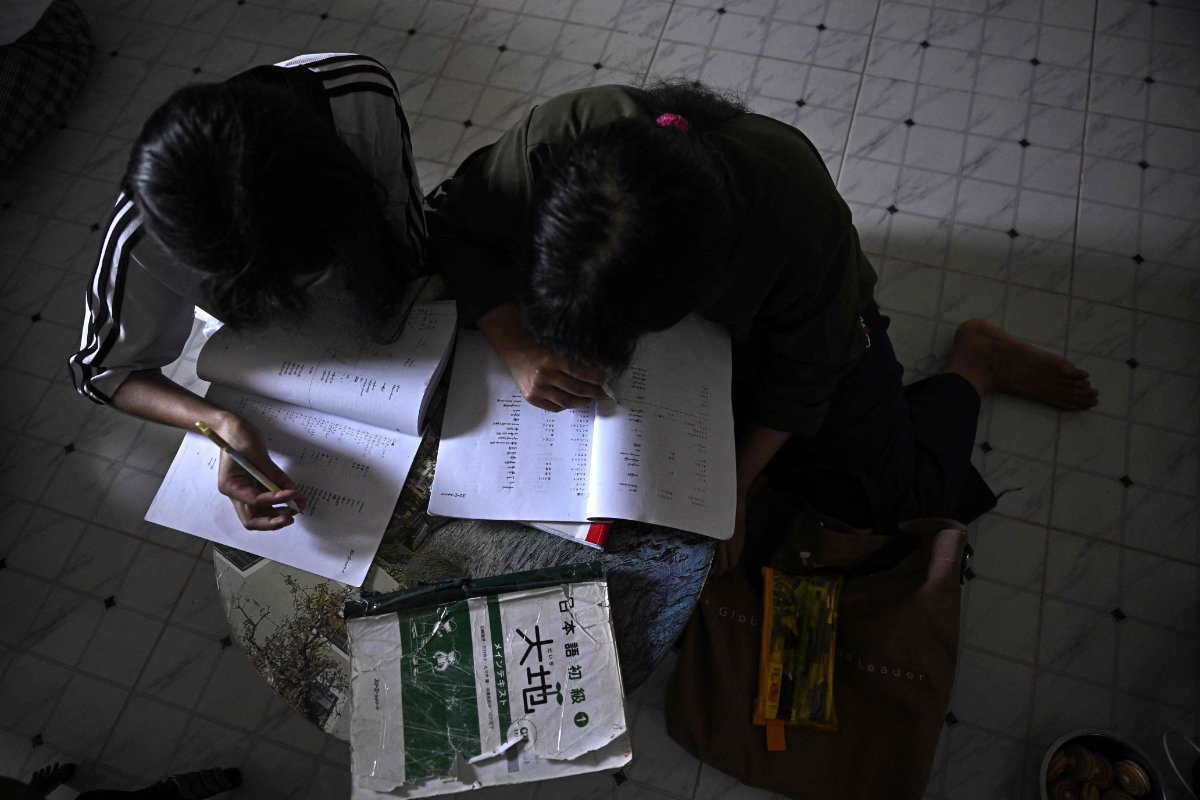LONDON: Just days before Americans head to the polls to decide who will be the next US president, Republican Donald Trump and Democrat Kamala Harris find themselves neck and neck in the race for the White House. With the contest balanced on a razor’s edge, any minor development at this point could be enough to decisively swing the vote.
Although they make up just 1 percent of the total electorate, Arab Americans represent a significant constituency in several swing states, where even a handful of votes could influence the election outcome. As such, neither of the main candidates can afford to take their votes for granted.
That is why Arab News teamed up with polling agency YouGov to survey the attitudes of Arab Americans across all geographies, age ranges, genders and income brackets to see which way the community was leaning, and what issues mattered to them most.
What became abundantly clear from the survey was that Arab Americans are not a monolith motivated by any single issue. Domestic matters, such as the economy and the cost of living, loomed large, while border security and abortion rights were also key considerations.
However, it was the plight of the Palestinians that emerged as the biggest issue for Arab Americans of all generations; namely the ongoing Israeli offensive against Hamas in Gaza and the perceived failure of President Joe Biden’s administration to rein in Israel.

Asked which candidate they were most likely to vote for, 45 percent said Trump while 43 percent opted for Harris. (AFP/File)
Brian Katulis, a senior fellow for US foreign policy at Middle East Institute, who moderated a special panel discussion on Monday to examine the poll findings, said the prominence of the Palestinian issue in this election showed there was still a role for the US to play in the region.
“Within the political discussion we’re having in this country, it does imply that there’s actually a strong interest in the US engaging more deeply in the Middle East — just doing it in the right way,” said Katulis.
“There’s a serious difference over who and which candidate is the right way. But for those who’ve said that we should just pull back from the region, restrain ourselves, there’s some who say that, but I think there’s a general impulse here that we need to actually delve more deeply into trying to solve — or not solve, but engage — these questions in a proper way in the region itself, but then politically here at home.”
Asked to place six key issues in order of priority, 26 percent of Arab Americans polled by YouGov said the Israeli-Palestinian conflict is their chief concern. The economy and the cost of living were not far behind, representing the chief concerns for 19 percent of respondents.
“The highest priority, in terms of issues that Arab Americans face, the Palestinian-Israeli conflict came at 26 percent — the highest — then followed by the economy and cost of living,” Lara Barazi, a freelance data consultant and former research director at YouGov, told the MEI panel.
Palestine appeared to be of most concern to Arab Americans in lower income brackets: 37 percent of those earning under $40,000, falling to 22 percent among those paid $80,000 or more.
“These are their issues that kind of mirror what’s going on right now in the US, not only for Arab Americans, when we look at income,” said Barazi.

If Harris does beat Trump to the presidency, it remains unclear whether she will shift the Democratic Party’s stance on Israel. (AFP/File)
“The highest priority goes to the Palestinian conflict. It’s 41 percent of the lowest earners who support the Palestinian-Israeli conflict versus the highest earners. Basically, they’re interested in the economy, cost of living and the Palestinian conflict, but they do put a lot of weight on the economy and cost of living.”
What was also interesting about the findings was how much of a priority the Middle East conflict was for respondents identifying as Republican, Democrat and independent.
“We see that the highest (ranking) for the Palestinian-Israeli conflict comes from independents and the lowest comes from Republicans,” said Barazi. “Only 17 percent of Republicans said that the Palestinian-Israeli conflict is a top priority for us, while cost of living comes the highest for Republicans.”
Despite Trump being perceived as more supportive of the Israeli government than Harris, many Arab Americans indicated in the poll that they would still vote for him, which suggested they are penalizing the Democrats over the Biden administration’s perceived failure to rein in Israel.
Asked which candidate they were most likely to vote for, 45 percent said Trump while 43 percent opted for Harris, although this gap could easily be narrowed — or slightly widened — by the survey’s 5.93 percent margin of error.
The slightly higher support for Trump than for Harris comes despite the fact that 40 percent of those polled described themselves as Democrats, 28 percent as Republicans and 23 percent as independents.
The findings were somewhat puzzling, especially as Trump has announced his intention to expand his 2017 travel ban on people from seven majority-Muslim countries (Iran, Iraq, Libya, Somalia, Sudan, Syria and Yemen) and has said if elected he would bar Palestinian refugees from entering the US, policies that few Arab Americans would support.
Nevertheless, it appears Biden’s record on the Middle East over the past year has been the deciding factor for many.
Also taking part in Monday’s MEI panel discussion, Yasmeen Abu Taleb, a White House reporter at The Washington Post, said the Democrats never expected the issue of Palestine to hang over the campaign in the way that it has.

Despite Trump being perceived as more supportive of the Israeli government than Harris, many Arab Americans indicated in the poll that they would still vote for him. (AFP/File)
“We’ve never seen the issue of Palestine be this big of a political issue for this long,” she said. “I think in the Biden administration, there was a sense that people would be really angry and protest for a month or two. They hoped the war would be over by January.
“They were always wildly optimistic that this was not going to hang over them as an election issue. And here we are, more than a year later, and it’s still a key driver of the election. I think that’s an important signal of how much the politics have shifted on this.
“I don’t think we’ve seen this in US politics, where the debate has been this intense and sustained.”
If Harris does beat Trump to the presidency, it remains unclear whether she will shift the Democratic Party’s stance on Israel or if the policy of the Biden administration, of which she is part, will remain broadly unchanged.
“Obviously it depends on who wins but I do think if you saw a Harris presidency, it’s not going to be the dramatic change that people are pushing for,” said Abu Taleb. “But I do think there are signs that the Democratic Party is shifting on Israel, and in subtle but important ways.”
Although the Arab News-YouGov poll focused on Arab American opinion, the panel discussion naturally expanded to the prevailing attitudes among the Arab populations and leaderships in the Middle East. Tarek Ali Ahmad, head of research and studies at Arab News, said that many in the Middle East are holding their breath.
“People are essentially just waiting for the election day to come,” he added. “That’s when everyone’s going to be like, OK, now we can finally stop this election game, campaigning, and we can actually get to solid, concrete policy that will affect what’s going to happen, whether or not we’re going to see an actual end to the conflict, or we’re going to see even further.
“We haven’t heard anything in terms of preference to whichever candidate comes through. But at the same time, we cannot dismiss the fact that any incoming president will have a lot to clean up with regards to everything that’s happening on the ground.”

“So there’s so many different aspects that come to shift public opinion on the ground with regards to who’s going to be president,” Ali Ahmad said. (AFP/File)
On whether or not the Arab world has any preference for the US presidency, Ali Ahmad said many in the region have remained tight-lipped, preferring to wait and see the outcome of this closely fought race.
“There’s a lot of different points of view and there’s no real proper preference for either candidate because of the fact that it’s just such a razor-thin difference,” he said.
“Now you have people on the ground talking about how, essentially, every single event that occurs causes a shift in opinion, from (Israel) entering into Lebanon, from the bombing of Iran, to even Biden’s resignation from the nomination.
“So there’s so many different aspects that come to shift public opinion on the ground with regards to who’s going to be president.”
Reflecting on the significance of the role of the Arab American constituency in the election, Ali Ahmad said many seem to recognize their vote can make a significant difference.
“The reason why there’s a big turnout, as we said, nine out of 10 Americans are set to go vote, is that 80 percent of those who responded found that their vote actually counts and will matter in this year's election,” he said.
“They really feel that they could actually change it and make that difference, whether it is to punish the Democrats or whether it is to actually vote for an independent.”
































